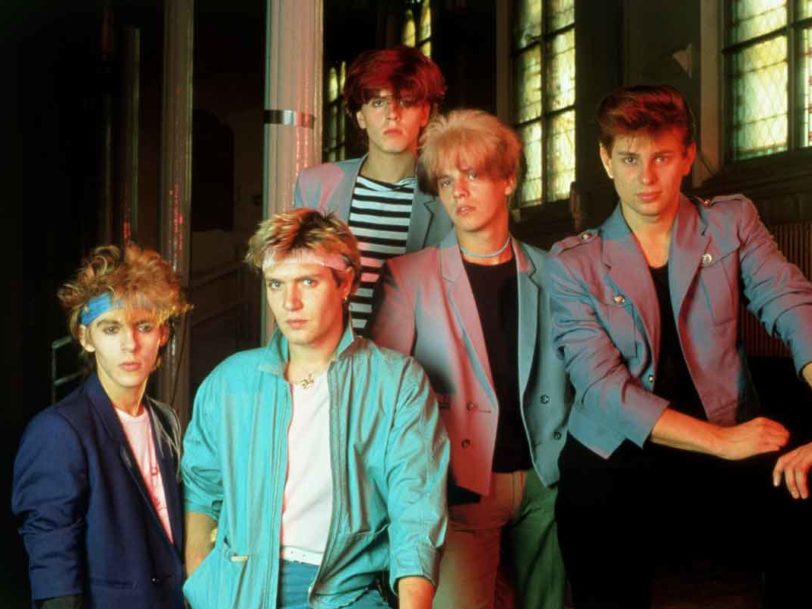Long before Duranmania swept the globe following the success of Rio, the Birmingham pop group Duran Duran provided many clues that there was more to them than meets the eye. Released in 1981, the band’s self-titled debut album saw them offer up a surprisingly experimental fusion of brooding synth instrumentals and dancefloor-ready pop anthems. Though overshadowed by their later success, Duran Duran’s first album established a sound that placed them at the forefront of the New Romantic movement.
Listen to Duran Duran’s debut album here.
“They wanted to keep it funky and danceable”
Founded by keyboardist Nick Rhodes and then-guitarist John Taylor while they were working at Birmingham’s Rum Runner nightclub, Duran Duran set out to fuse the punky attitude of Sex Pistols with the discofied grooves of Chic. However, it would take many line-up changes before they were ready to conquer the world. Lead vocals were initially supplied by Stephen Duffy, with Simon Colley on bass, before both of them left and Andy Wickett became the group’s new singer.
With the addition of Roger Taylor on drums, Duran Duran ditched the drum machines and, with John Taylor switching to bass, their sound started to take shape. Responding to an ad in Melody Maker, guitarist Andy Taylor became a vital new addition – his traditional rock style lent a raw, edgy feel to the group’s more synthesised arrangements. “They wanted the metal sound of the guitar,” Andy Taylor remembers. “but they wanted to keep it funky and danceable and also wanted [Brian] Eno in the background.”
Taking their name from Dr Durand Durand, the antagonist in the 1968 sci-fi film Barbarella, this early iteration of the group rehearsed regularly at the Rum Runner, recording numerous early demos inspired by Kraftwerk, Roxy Music and David Bowie’s Berlin period. The band hit another setback when Wickett quit and they were forced to hunt for a new singer; however, when Simon Le Bon arrived at his audition with a book of poems, it seemed like destiny. Not only did Le Bon boast a muscular voice, but his lyrical ambitions became the final piece in the puzzle. At last, the band were poised for success.
“There’s something very romantic about astronauts”
In December 1980, Duran Duran signed a record deal thanks to A&R man Dave Ambrose, the man who had discovered Sex Pistols. Recruiting producer Colin Thurston (The Human League, Iggy Pop), the group had hoped to conjure some of The Beatles’ magic by recording their album at Abbey Road Studios, but when Thurston struggled to capture a drum sound they liked, they decamped to Red Bus Studios in London and Chipping Norton Studios in Oxfordshire. Spookily enough, the sessions were momentarily halted by the assassination of Beatles legend John Lennon that same month.
Duran Duran’s debut single, Planet Earth, was released on 2 February 1981 and made an immediate impact, peaking at No.12 in the UK. “There’s something very romantic about astronauts,” Nick Rhodes declared, placing the song in the same otherworldly lineage as David Bowie’s Space Oddity. With its zig-zagging guitar lines, Planet Earth’s lyrics playfully made reference to synth-pop fashion sensibilities (“Like some New Romantic looking for the TV sound”), anointing Duran Duran as the new gentry of the music scene.




